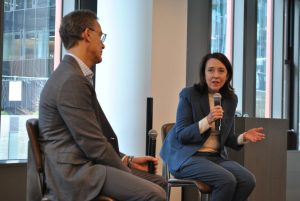The ongoing debate surrounding Generative artificial intelligence (Gen AI) and its potential impact on the U.S. labor market is a hot topic among experts. Some predict widespread job losses, while others believe that new opportunities will arise with the adoption of AI technology. Automation is seen as a trend that could lead to layoffs not only for low-skilled workers but also for higher-skilled professionals. There is a growing concern about the future of jobs, with predictions that only two types of jobs will exist in the future: those that tell machines what to do and those that are told by machines what to do.
While the fear of job loss due to AI is real, historical examples suggest that past technologies have led to the creation of new occupations. A study found that 60 percent of today’s workers are employed in occupations that did not exist in 1940. The ongoing debate revolves around whether AI will ultimately save or augment labor when considering the overall job landscape. The mechanization of agriculture and the adoption of computers both had significant impacts on the labor market, leading to changes in demand for skilled versus unskilled workers and wage differentials.
The adoption of Gen AI poses unique challenges and opportunities as it has the potential to impact a wider array of jobs than previous technologies. Roughly two-thirds of U.S. occupations are estimated to be exposed to some degree of automation by AI, with a quarter to half of the workload potentially being replaced. Despite the positive outlook on increased productivity growth with the adoption of Gen AI, businesses may face challenges in reaping the benefits due to long adoption lags for new technologies.
Recent studies have shown a shift in the deployment of AI based on firm size, with smaller firms increasingly utilizing AI tools. ChatGPT and other emerging technologies are making it easier for small businesses to incorporate AI into their operations. The most common uses of AI tools include customer service, cyber security, and fraud management, with professional workers using AI for more complex needs. AI tools are seen as powerful assets for workers to enhance their performance by quickly analyzing vast amounts of data.
Experts like MIT economist David Autor are optimistic about the potential of Gen AI to provide workers without a college education with the skills needed to perform more sophisticated work and earn higher wages. This could ultimately help to reduce income inequality and lead to a more balanced labor market. However, the impact of Gen AI on stock market returns remains to be seen, as profits may revert to their long-term trend relative to GDP. Overall, the debate over the impact of AI on the labor market is ongoing, with both challenges and opportunities ahead as businesses navigate the adoption of new technologies.




